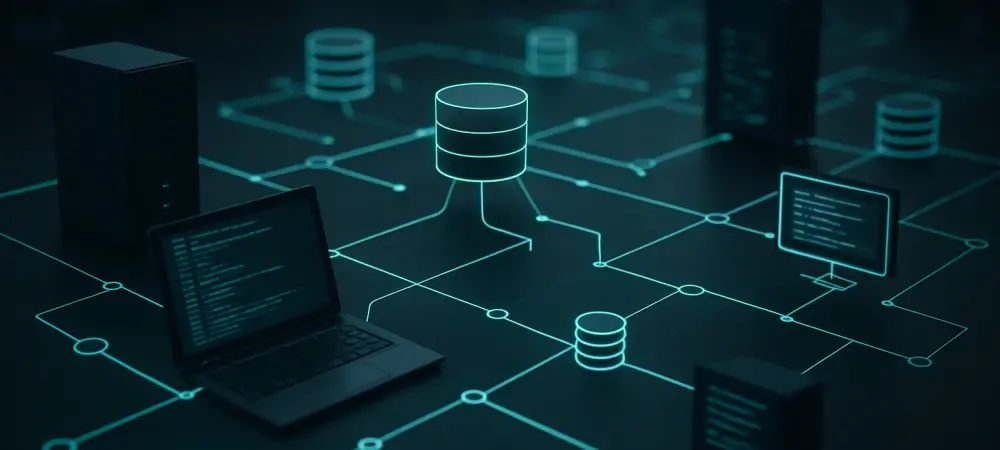In a rapidly evolving technological landscape, Dominic Jainy stands out as a distinguished expert with an extensive background in artificial intelligence, machine learning, and blockchain. With an avid interest in applying these advanced technologies across different industries, Jainy discusses the concept of data lineage, a crucial process for modern organizations. This interview explores the importance of data lineage, its role in ensuring data quality, and how it supports key business operations.
Can you explain what data lineage is and why it is important for businesses?
Data lineage refers to the process of documenting the path that data takes through an organization’s IT systems. This documentation includes data’s origin, the transformations it undergoes, the systems it interacts with, and its final destination. It’s vital for businesses because it provides transparency, which is essential for ensuring data quality, managing data efficiently, and meeting regulatory compliance requirements.
How does data lineage contribute to data accuracy and consistency within an organization?
Data lineage helps identify the origins, transformations, and movements of data sets across an organization’s systems. By tracking how data moves and changes, we can verify its accuracy and consistency, pinpoint sources of error, and maintain data quality. This process ensures data remains reliable and trustworthy, which is critical for making informed business decisions.
What are some key benefits of implementing a data lineage process?
Implementing a data lineage process offers several advantages, including more accurate analytics, stronger data governance, better regulatory compliance, improved data security, and more streamlined data management. By knowing the data’s journey, organizations enhance operational efficiency and data reliability, which overall boosts their decision-making capabilities and business value derivation from data.
How does data lineage enhance analytics efforts for businesses?
Data lineage improves analytics efforts by providing a clear understanding of the data’s origin, transformation, and contextual details. This transparency allows data analysts and business users to better understand the data they are working with, which leads to more accurate, actionable insights for business decisions.
In what ways does data lineage support data governance within a company?
Data lineage is fundamental to data governance because it enables organizations to manage data more efficiently and in a more disciplined manner. It supports the execution of data governance policies relating to data protection, privacy, and usage. By offering insights into data flow and modification pathways, lineage makes it easier to ensure that data governance policies are being followed and helps with maintaining data integrity.
How does data lineage contribute to stronger data security and privacy protections?
Data lineage plays a crucial role in security and privacy by helping identify sensitive data requiring special protection measures. The information derived from data lineage allows organizations to implement appropriate access controls and security measures to safeguard data. By understanding data flow and transformations, businesses can conduct risk assessments more effectively, ensuring that sensitive data is shielded across the organization.
What role does data lineage play in ensuring regulatory compliance for organizations?
Data lineage serves as an audit trail, making it easier to show that all data is collected, processed, stored, and used in alignment with regulatory standards. This detailed documentation allows organizations to audit compliance more easily and effectively, ensuring that they meet legal and industry requirements, avoid penalties, and protect their reputations. It also supports the correction of compliance gaps by identifying risky areas where data doesn’t align with regulations.
How can data lineage streamline data management tasks?
By clarifying how data flows and is transformed within an organization, data lineage can help identify inefficiencies and errors within data processes. It helps break down data silos, fosters data sharing, and promotes collaboration across different departments. This comprehensive view of the data lifecycle aids in managing data migrations and identifying discrepancies, ultimately leading to more efficient data management.
What are some common use cases for data lineage in a business setting?
Data lineage is valuable in various business settings, such as ensuring data integration and accuracy across IT systems, supporting regulatory compliance, and enabling efficient master data management. It helps organizations perform tasks like business impact analysis, root cause analysis of data quality issues, and assessment of compliance levels, ensuring that data meets internal and external policy and regulatory standards.
Can you differentiate between data lineage, data classification, and data provenance?
While closely related, these terms describe different aspects of data management. Data lineage is about tracking the data flow and transformation through systems. Data classification involves categorizing data based on characteristics, often for security and compliance. Data provenance, on the other hand, provides historical records of the data’s origin and transformation, ensuring users can audit the data’s lineage back to its source to address errors and improve accuracy.
How should organizations tie data lineage to real business and IT needs?
Organizations should approach data lineage not as a mere compliance obligation but as a strategy that directly impacts business and IT needs. This requires a clear understanding of how data serves business objectives and involving all relevant stakeholders—executives, data governance teams, and business users—from the very beginning. This alignment ensures that data lineage efforts are purposeful, contribute to better business strategies, and improve data quality and governance.
Do you have any advice for our readers?
Data lineage is a critical aspect of effective data management and governance. My advice to companies is to take this seriously and look at it as an opportunity to enhance the entire data pipeline. By understanding your data’s journey, you’re better equipped to leverage its full potential for strategic decisions. Organizations should use a combination of techniques, such as manual interviews, tagging, and automated tools. Additionally, they should involve both business executives and users to ensure the lineage efforts address real-world needs and remain relevant over time.

